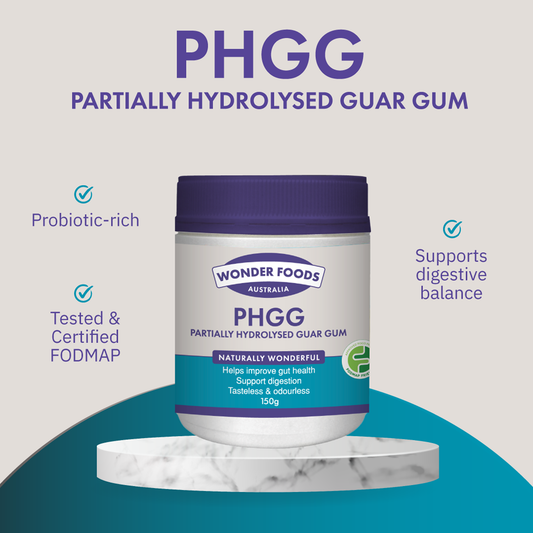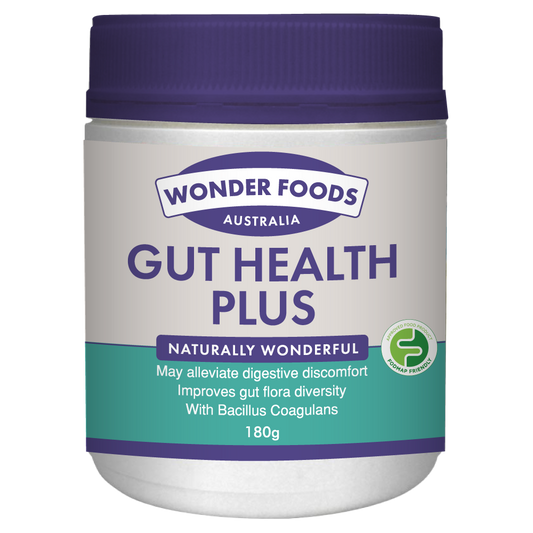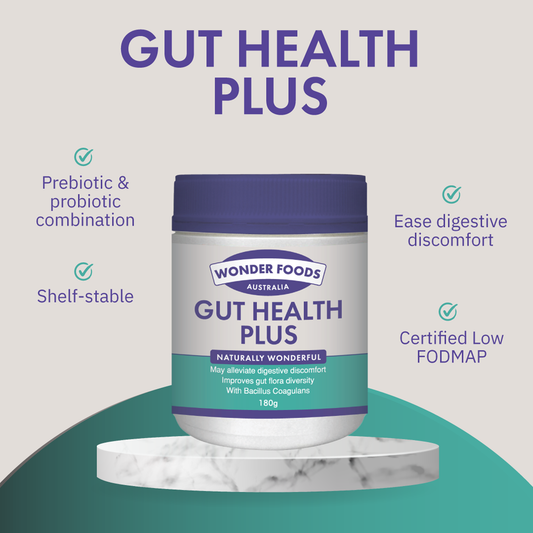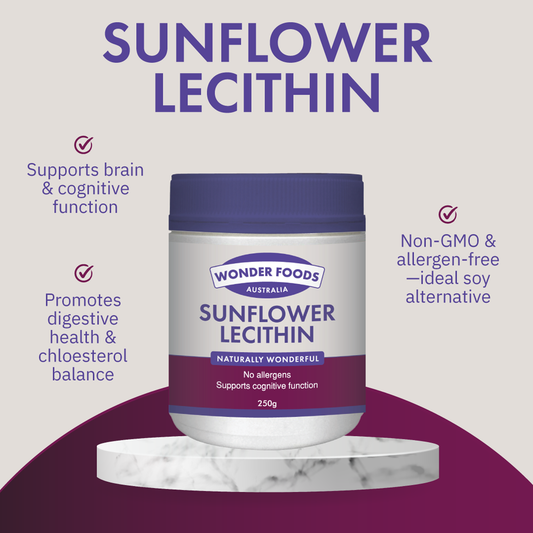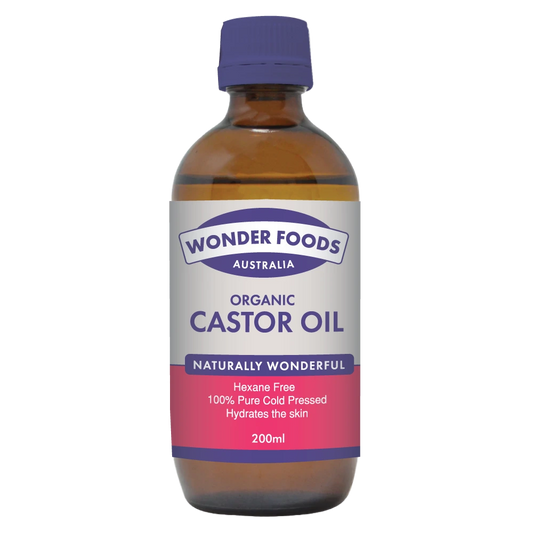
Can Gut Health cause Depression?
The connection between gut health and mental well-being has gained significant attention in recent years, especially concerning its role in mood disorders like depression and anxiety.
The gut-brain axis, a bi-directional communication network between the gut and brain, is increasingly recognised as a key player in mental health.
We explore how a balancing your gut microbiome supports your mental health and how imbalances may contribute to depressive symptoms.
We’ll also discuss dietary and therapeutic strategies to improve gut health as a natural approach to alleviating depression.
What is the Gut-Brain Axis?
The gut-brain axis is a complex system that allows the gut and brain to communicate directly.
This link is made possible by the enteric nervous system (ENS), also known as the "second brain," which resides in the gut and contains millions of neurons that send signals to the brain.
These signals influence mood, stress response, and even decision-making.
Just as the brain can influence gut functions, a troubled gut can send distress signals to the brain.
This mutual communication explains why gastrointestinal (GI) symptoms often accompany mental health issues, and vice versa.
Notably, the gut also plays a vital role in producing neurotransmitters—such as serotonin, often dubbed the "feel-good hormone"—which regulate mood and mental well-being.
About 90% of your serotonin is produced in your gut, further emphasising the gut-brain connection's role in maintaining emotional balance.

Gut Microbiota & Mental Health
Your gut microbiota, consisting of trillions of microorganisms, is crucial for digestion, immune function, and even mood regulation.
A healthy gut microbiome supports your serotonin production, reduces inflammation, and helps prevent the development of mental health conditions.
However, when there is an imbalance in gut bacteria—known as dysbiosis—the risk of mental health issues, including depression, may increase.
Recent research has shown that certain gut bacteria play a pivotal role in maintaining mental health.
For instance, beneficial bacteria like Bacillus coagulans can help mitigate reduce depression and irritable bowel syndrome symptoms.
Conversely, elevated levels of harmful bacteria have been associated with increased levels of cortisol, a stress hormone that contributes to anxiety and depression.

Gut Health & Depression: Understanding Inflammation
Chronic inflammation is a well-known factor in depression. Studies show that an imbalanced gut microbiome can lead to systemic inflammation, which may, in turn, affect the brain.
A high-fat, high-sugar diet, for example, can contribute to dysbiosis and promote inflammation, potentially worsening symptoms of depression.
This inflammation also compromises the integrity of the gut lining, leading to a condition commonly referred to as "leaky gut."
A leaky gut allows toxins and bacteria to enter your bloodstream, further fuelling inflammation and creating a feedback loop that exacerbates depressive symptoms.
Addressing gut inflammation through dietary changes and lifestyle modifications can thus be a powerful way to support your mental health naturally.

Gut Microbiome & Depression: Diet
Several studies indicate that diet significantly impacts your gut microbiome and mental health.
Diets rich in processed foods, refined sugars, and unhealthy fats have been associated with an increased risk of depression due to their negative effects on gut health.
Conversely, a Mediterranean-style diet rich in fruits, vegetables, animal protein, and healthy fats has been linked to a reduced risk of depression.
Omega-3 fatty acids, found in fish, have anti-inflammatory properties and have been shown to improve depressive symptoms.
Additionally, diets rich in fibre from vegetables, fruits feed beneficial gut bacteria, promoting a balanced microbiome and supporting mental well-being.
Incorporating prebiotics (like garlic, onions, and inulin from the Jewish artichoke) and probiotics (like yogurt, kefir, and sauerkraut) can further enhance gut health and reduce depressive symptoms.
Synbiotics, a combination of probiotics and prebiotics, have been shown to positively impact gut health and, by extension, mental health.
Supplementing with a synbiotic like Wonder Foods Gut Health Plus can help tremendously.

The Role of Fecal Microbiota Transplantation (FMT)
For individuals with severe dysbiosis, fecal microbiota transplantation (FMT) is emerging as a potential therapy.
FMT involves transplanting gut bacteria from a healthy donor into a recipient with a compromised gut microbiome.
Studies in mice have shown that FMT from healthy individuals can reduce anxiety and depressive behaviours, suggesting it may offer new possibilities for treating mental health disorders associated with gut dysbiosis.
While promising, more research is required to determine its efficacy and safety in humans.
Gut Health & Mental Well-being: Practical Tips
Here are some practical ways to support both gut health and mental well-being:
- Consume a Mediterranean-style diet rich in fruits, vegetables, and healthy fats.
- Incorporate omega-3 fatty acids by eating fatty fish which have anti-inflammatory benefits.
- Add fibre-rich foods to your diet, such as leafy greens, nuts, and seeds, to nourish beneficial gut bacteria.
- Limit sugar and processed foods that contribute to gut dysbiosis and inflammation.
- Consider a high-quality Synbiotic supplement containing strains like Bacillus coagulans to support your gut balance.
- Exercise regularly, as physical activity positively affects both gut health and mood.
- Practice stress-reduction techniques like mindfulness meditation, Epsom salt baths, etc. which has been shown to benefit both gut and mental health.
- Get adequate sleep, as sleep quality plays a crucial role in mental health and gut health.
Gut Health & Depression: Conclusion
While depression is a complex condition with multiple contributing factors, addressing gut health can be a powerful tool for supporting mental well-being.
Research underscores the importance of a balanced gut microbiome in maintaining mood stability and reducing depressive symptoms.
From dietary adjustments to targeted probiotic and prebiotic supplementation, there are numerous ways to improve gut health and, consequently, mental health.
Although more research is needed, the evidence supporting gut-focused approaches to managing depression is encouraging.
As awareness of the gut-brain connection grows, prioritising gut health can be a proactive step toward achieving greater emotional resilience and overall well-being.
Disclaimer
This article is for informational purposes only and should not be used as a substitute for professional medical advice, diagnosis, or treatment. If you are experiencing symptoms of depression or other mental health conditions, consult a qualified healthcare provider.


